In recent days, images of the "Match Day" ceremony to select residents of Hanoi Medical University have created a fever on social networks, with a flood of views, shares and comments on all platforms.
Many opinions say that resident doctors have both excellent academic ability, are strictly selected and well-trained to carry out the mission of taking care of people's health, so they deserve to be considered the elite of the medical profession, even the "elite of the elites" of the country.

Image of resident doctors choosing their major at the "Match Day" ceremony (Photo: Hanoi Medical University).
How is a resident different from a specialist and a master?
Speaking with Dan Tri reporter, representative of Pham Ngoc Thach University of Medicine - a medical training institution under the People's Committee of Ho Chi Minh City - said that currently, this place has 11 majors for training resident doctors, with the number of quotas from 2018 to present ranging from 90 to 154 students.
After passing the rigorous selection exam, the resident doctors will be listed and sent to the Department of Health every year. From there, the Department of Health will contact hospitals to collect recruitment needs data, then organize a meeting to assign tasks to these students.
Students are allowed to choose according to their needs on the list recommended by the Department of Health. Then, they will go to the assigned hospital to sign a work contract, be paid according to the unit's regulations, be supported during the study process and committed to work time after graduation.
To be eligible to take the residency exam, students must be regular general practitioners, graduated in the most recent year with a good grade or higher, and have not been disciplined with a warning or higher in the past 6 years of university, and have not been suspended from study. If the candidate graduates with excellent grades (average score of 9 or higher) and meets the requirements according to regulations, they can be considered for exemption from the entrance exam.

Announcement ceremony of the 2025-2026 school year training plan of Pham Ngoc Thach University of Medicine (Photo: Provided by the school).
In response to questions about how residency training differs from other types of postgraduate training such as specialist level 1 and master's, a representative of Pham Ngoc Thach University of Medicine analyzed that there are 6 basic characteristics to distinguish between these groups of doctors.
First is the learning conditions. As mentioned above, students who want to take the residency exam must be general practitioners who have graduated with a good degree or higher and must write a thesis. For specialist 1 doctors, candidates can only take the exam after having a practice certificate, 12 months of working experience in the field and not writing a thesis.
As for masters, the condition to take the exam is to have graduated or meet the conditions for recognition of graduation from a university in a relevant field. Candidates must also have a graduation grade of good or higher or must provide evidence of scientific publications related to the field of study.
Second is the training time. The residency training program lasts 3 consecutive years, full-time. During this time, the resident students are almost required to be present full-time at the hospital. With masters and specialist 1, they are trained in a concentrated manner for 2 years.
Third, the scope of practice. Resident doctors both study in depth in a specific specialty and directly participate in treatment as an official doctor in a tertiary hospital. Meanwhile, masters and specialist doctors have general knowledge, not as specialized as resident doctors.
Fourth, clinical practice. Resident doctors are involved in more practice and procedures and surgeries, and are exposed to many serious, rare, and complicated cases. Meanwhile, masters and specialist doctors have less internships in the post-graduation period.
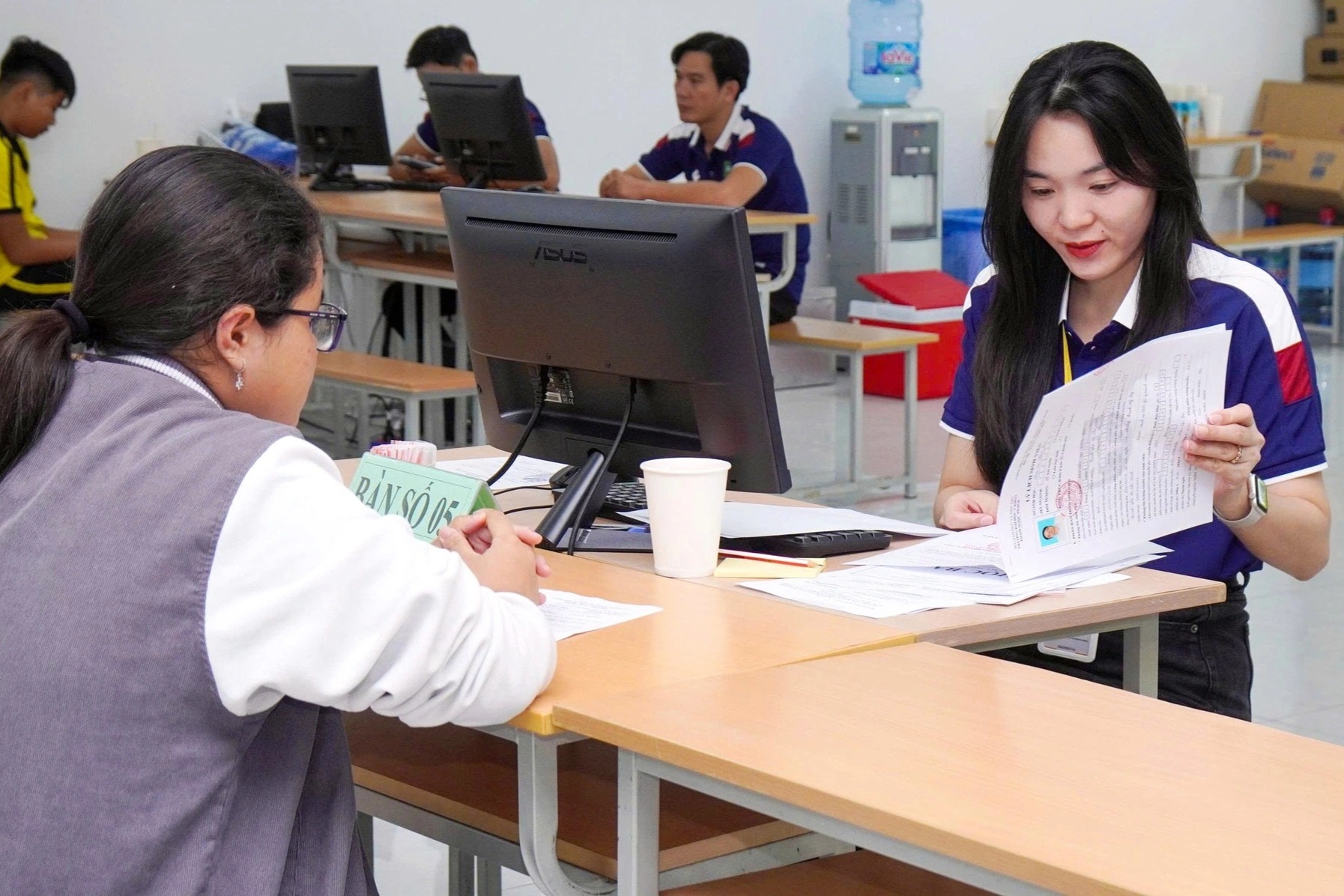
Students complete admission procedures at Pham Ngoc Thach Medical School (Photo: Provided by the school).
Fifth, about the practice certificate. While residents and specialists 1 have the right practice certificate after graduation, masters need to have an additional 12 months of experience in the specialty after graduation.
Sixth, about career opportunities. Resident doctors will be given priority in recruitment at large hospitals, have easy promotion and are often retained by universities as lecturers. After completing their studies, residents can continue to study for a second specialty or a doctorate, many of whom become department or office leaders. The other two groups of doctors must accumulate more time and qualifications.
Advantages come with great pressure and challenges
To achieve the above significant opportunities and priorities, resident physicians also face great challenges.
In fact, in addition to studying, they have a heavy workload, night shifts, and continuous emergency shifts. Resident doctors have to take care of their daily work (medical records, procedures, consultations) and complete their graduation thesis, so they are under pressure from all three sides: the supervising doctor, the patient, and the entire hospital system.
Although they work almost full-time in hospitals, residents receive low benefits (less than full salary). In addition, the 3-year training period can be a financial burden for their families.
For example, at Pham Ngoc Thach University of Medicine, the tuition fee for resident doctors in the 2023-2024 academic year is 63 million VND/year, not including the cost of defending the outline and thesis.
In addition, post-training professional pressure is also something that residents have to face, when society and colleagues have very high expectations. They are easily scrutinized if they do not do well.
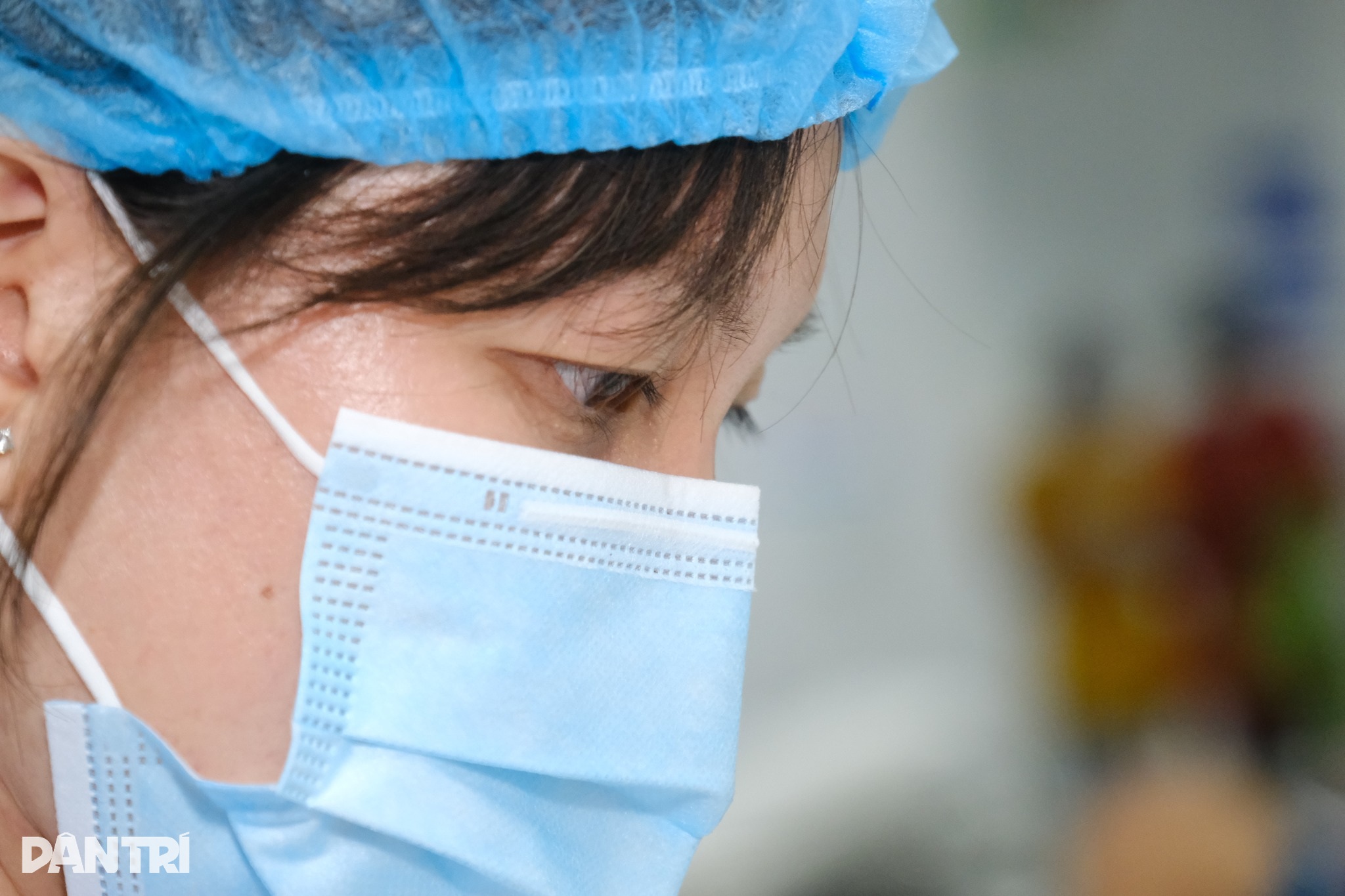
Resident doctors have many opportunities but also come with great pressure (Illustration: Hoang Le).
Is it the “cream of the cream”?
According to Decision No. 19/QD-BYT signed by the Minister of Health on July 4, 2006, resident physician training is a special type of postgraduate training, one of the methods of training good experts and young talents in the health sector, applied to clinical, paraclinical and preventive medicine specialties.
“Thus, resident doctors are considered the elite training of the medical industry and knowledge, are talents selected from newly graduated doctors, with a training program framework of 150 credits in 3 years, mainly focusing on professional time at the hospital.
Resident doctors are considered to be superior in thinking, knowledge, skills, professional capacity, adaptability and problem-solving ability compared to other training levels," said a representative of Pham Ngoc Thach University of Medicine, in response to the question of whether resident doctors are "the cream of the cream" as many people have recently compared.
In more detail, a large medical training unit in Ho Chi Minh City said that resident doctors play an important role in the Vietnamese health system. They are the “seeds” of key specialties and a source of high-quality human resources. Many resident doctors after training have become key personnel, lecturers, and department heads at medical facilities.

Resident doctors play an important role in the Vietnamese healthcare system (Photo: Hanoi Medical University).
When assigned to the locality, they bring with them experience and advanced treatment procedures, contributing to improving the quality of primary health care. In addition, resident doctors also contribute to training and treatment activities, as they are both students and additional "human resources" for the hospital.
In the world, many developed countries such as the US, Canada, France, Germany, UK, Japan, Korea… still maintain the form of training resident doctors to build high-quality human resources for themselves. Even in the US or Japan, “residency” is a mandatory path for doctors to practice their specialties.
The residency system helps ensure that young doctors are closely supervised, learning while working, limiting errors when practicing independently too early. In addition, many residency programs are integrated with research, creating a foundation for a generation of scholars and doctors to develop academics and research.
Should mass training be done to improve the quality of the medical industry?
According to Pham Ngoc Thach University of Medicine, if Vietnam expands the training of international standard resident physicians, it can bring our country closer to the US-EU healthcare system, where "residency" is mandatory.
In essence, this helps create a high-quality medical workforce, helping primary hospitals have doctors trained at the lower levels, thereby reducing the gap between upper and lower levels.
However, in reality, to train resident doctors, we need central hospitals, first-class hospitals, many experienced lecturers, and many clinical cases. If every doctor has to undergo residency, it will not meet the training needs of all students. Because resident doctors have to study for a long time, hospitals may not be able to recruit enough staff.
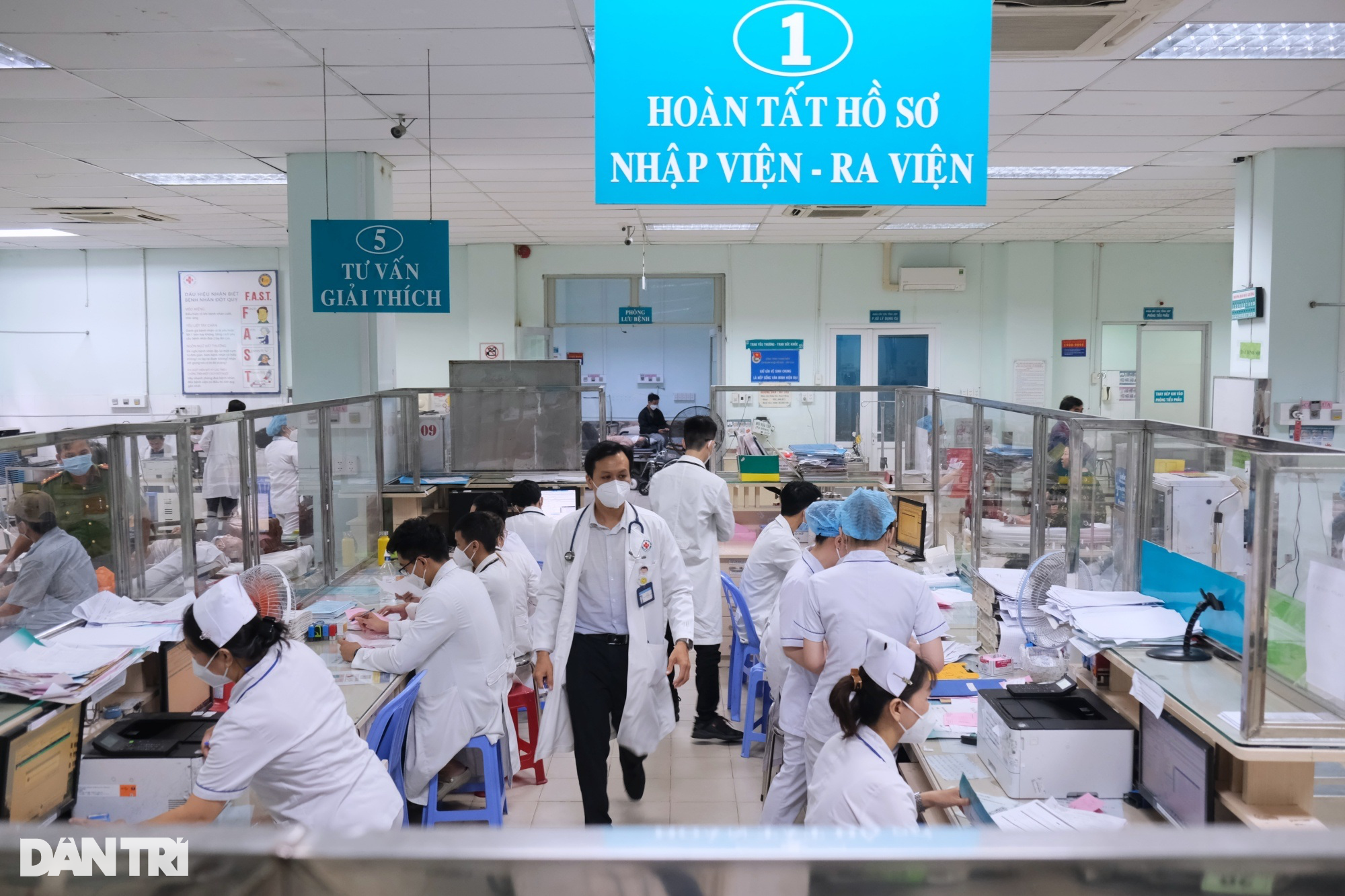
Medical staff work at the Emergency Department of a public hospital in Ho Chi Minh City (Photo: Hoang Le).
In addition, residents after completing their studies often want to stay in large hospitals, making it difficult to distribute evenly to remote areas. In addition, the salaries of residents in the public hospital system are not as high as those in private hospitals, leading to a brain drain.
Therefore, Pham Ngoc Thach Medical School believes that our country should not massively expand the training of resident physicians in the current conditions. What is necessary is to maintain the selective training of high-quality resident physicians, combined with primary and secondary specialties and continuous training, to ensure both "elite" quality and sufficient medical personnel.
Vietnam can also learn from the international model, gradually moving towards a “mandatory residency” model for some key specialties (such as Surgery, Resuscitation, Pediatrics, Obstetrics, etc.), instead of all.
Source: https://dantri.com.vn/suc-khoe/co-nen-dao-tao-bac-si-noi-tru-hang-loat-de-nganh-y-them-nhieu-tinh-hoa-20250915093240333.htm


![[Photo] National Assembly Chairman Tran Thanh Man chairs the 8th Conference of full-time National Assembly deputies](https://vphoto.vietnam.vn/thumb/1200x675/vietnam/resource/IMAGE/2025/9/29/2c21459bc38d44ffaacd679ab9a0477c)


![[Photo] General Secretary To Lam receives US Ambassador to Vietnam Marc Knapper](https://vphoto.vietnam.vn/thumb/1200x675/vietnam/resource/IMAGE/2025/9/29/c8fd0761aa184da7814aee57d87c49b3)
![[Photo] General Secretary To Lam attends the ceremony to celebrate the 80th anniversary of the post and telecommunications sector and the 66th anniversary of the science and technology sector.](https://vphoto.vietnam.vn/thumb/1200x675/vietnam/resource/IMAGE/2025/9/29/8e86b39b8fe44121a2b14a031f4cef46)
![[Photo] Many streets in Hanoi were flooded due to the effects of storm Bualoi](https://vphoto.vietnam.vn/thumb/1200x675/vietnam/resource/IMAGE/2025/9/29/18b658aa0fa2495c927ade4bbe0096df)










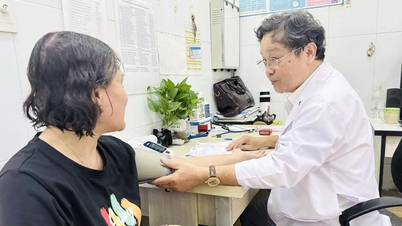
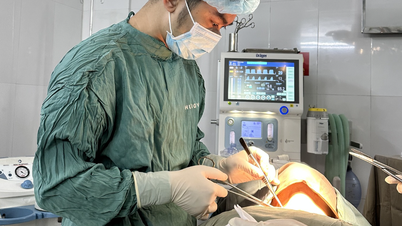
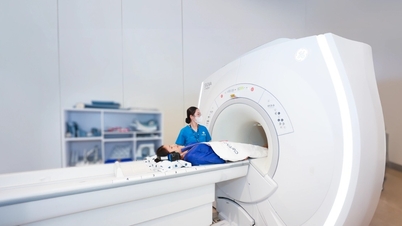









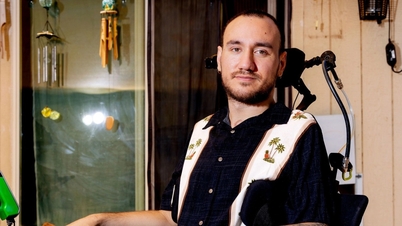



















































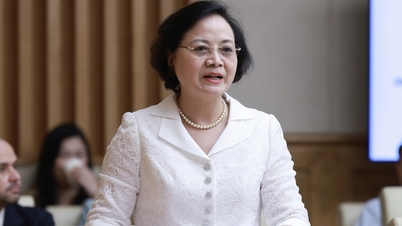


















Comment (0)